The other story is a pseudo-biographical thing about a teenager growing up in the Stockholm suburbia of the 1980s, during the heyday of Ultra, the tiny house turned punk headquarters. I suppose it’s a cooler and bolder version of myself. Also, older. I was too young to ever hang out at Ultra. It had already burned down by the time I discovered punk. I used to go to Ultra’s next iteration—Hunddagis, the club housed in an old day care centre for dogs. I still remember the punk aroma: beer, cigarettes, cheap hair spray and day-old sweat.
So, that’s what I’ve been doing: writing down a bunch of teenage memories and transposing them onto a little older and bolder version of myself and it’s just slow and boring work. I had a go at the science fiction story instead, but it wouldn’t happen. I ended up shutting everything down, realized it’s now one o’clock in the morning (actually it’s 1:30 now), and I’m going to bed.
31/5
I took a walk through the village this morning. Things that look like white, plum-sized pupas hang clustered under the eaves. They’re warm to the touch. I should tell Brita—it’s some kind of pest. Wasp nests?
Biked to the quarry after coffee, gathered some nice rocks—very pretty black granite. Went home, made pasta with chickpeas, tried to write. Writing about punks at Hunddagis doesn’t feel the least bit fun or interesting. Mostly because I’ve realized what a lame teenager I was. I was always home at the stroke of midnight; I didn’t like drinking mash; I didn’t have sex. I read books and had an inferiority complex because I was afraid to do all that other stuff. I don’t know anything about being a badass punk rocker.
It’s the same thing with the story about the engine room kids—what do I know about child labour? What do I know about how kids relate to each other under circumstances like that? Not to mention, what do I know about spaceships? I’m talking out of my ass.
So there I am. I can’t write about what I know, and I can’t write about what I don’t know. Better yet, I’ve told everyone that I’m staying in Åre until I’ve finished THE NOVEL. I somehow thought that saying it would make it happen.
Hang in there for another couple of weeks. And do what? Try some more. Go on biking trips and eat whey-cheese.
2/6
I’m taking a break. I’ve scrapped everything I was working on. I rented a car and drove west over the border into Norway, where I bought ice cream in a lonely little kiosk. When I was a kid, I thought the sign in Norwegian that said ÅPEN, open, meant APAN, the monkey. It was the most hilarious thing ever.
I had my ice cream, and looked at the Sylarna Mountains and the cotton-grass swaying on the bog. There was a thick herbal smell of mountain summer. Little pools and puddles were everywhere, absolutely clear, miniature John Bauer landscapes. I considered going on to Levanger, but it felt too far. I went for a swim in Gev Lake on the way home. It was just like when I was little: warm and shallow enough that if you walk out into the middle, the water only reaches your waist. Tiny minnows nibbled at my feet.
3/6
I’m having coffee in the little cabin on Åreskutan’s Summit. It’s a clear day, and I can see the mountain range undulating in the west, worn blunt by the ice ages. Mum once said that when she was a kid, there was a leathery old man who every morning hiked all the way up the mountain with a satchel full of coffee thermoses and cinnamon rolls that he would sell in the cabin. This was before the cableway, somewhere in the 1950s. The old man had done that since time immemorial, even when my grandmother and her sister were kids and dragged baking troughs up the mountain to ride them down like sleds.
4/6
I went for a walk in the holiday village. I became a little obsessed with the thought of stuff you can do when nobody’s looking. Build a pillow fort outside cottage number six. Streak howling through the street. I was thinking specifically of howling when I spotted the pupas. They’re the size of my fist now. That was fast. I forgot to tell Brita. Of course, I had to touch one of them again. It felt warmer than my hand.
Went shopping in Kall, had a cup of coffee, bought the newspaper, went past Brita’s house. I told her about the pupas. Her reaction was pretty strange. She said something about the pupas sitting there in summer, and that I should leave them alone. That’s why she’d put me in the cottage outside the village, so that the pupas would be left in peace. Yes, yes, I said. I won’t do anything. Do promise you won’t do anything, said Brita, and suddenly she was pleading. They have nowhere else to go, she said; you’re family, I can trust you can’t I? Yes, yes, I said, I promise. I have no idea what she’s on about.
5/6
I dreamed that there was a scraping noise by the door. Someone was looking in through the little side window. It was human-shaped, but it sort of had no detail. It was waving at me with a fingerless paw. The door handle was jerking up and down. The creature on the other side said nothing. It just smiled and waved. The door handle bobbed up and down, up and down.
It’s five past ten. I’ve slept for almost ten hours.
I went into the village to check if the pupas had grown, but all that remains are some empty skins hanging under the eaves. So that’s that.
6/6
There’s a knock on the door and someone’s waving at me through the side window. It’s a middle-aged man. When I open the door, he presents himself as Sigvard and shakes my hand. He’s one of the groups of tourists who live here during the summer. They’ve rented all the cabins, and now they’re throwing a party, and they’ve seen me sitting alone in my cottage. Would I like to join them? There’s plenty of food for everyone. I’m very welcome.
The party takes place in the little assembly hall. People are strolling over there from the other cabins. They’re dressed up for a summer night’s party: the women in party dresses and lusekofte sweaters tied over their shoulders, the men in slacks and bright windbreakers. Inside, the assembly hall is decked with yellow lanterns, and a long buffet table lines one of the walls. The guests are of all ages and resemble each other. I ask Sigvard if they’re family, and Sigvard says yes, they are! It’s a big family meet-up, the Nilssons, and they stay here a few weeks every summer. And now it’s time to eat.
The buffet table is covered in dishes from every holiday of the year: steak, roast ham, tjälknul, hot cloudberries, new potatoes, patés, pickled herring, gravlax, lutfisk, seven kinds of cookies, cake. I’m starving. I go for second and third helpings. The food has no taste, but the texture is wonderful, especially the ice cream mingled with hot cloudberries. Everyone seems very interested in me. They want to know about my family. When I tell them that Brita is my great-aunt, they cheer and say that we’re related then; I belong to the Anders branch of the family. Dear Brita! They love her! I’ll always be welcome here. Everyone else here belongs to the Anna branch: Anna, Anders’ sister and the eldest daughter of the patriarch Mats Nilsson.
When we’re done eating, it’s time to dance. The raspy stereo plays dansband music: singers croon about smiling golden-brown eyes, accompanied by an innocent and sickly-sweet tune. Everyone takes to the dance floor. Sigvard asks me to dance. This is like a cliché of Swedish culture, I say without thinking. Yes, isn’t it, says Sigvard and smiles. He holds me close. Then I wake up.
8/6
I started writing again. Throwing the old stuff out worked. Something else has surfaced—it’s fairly incoherent, but it’s a story, and I’m not about to ruin it by looking too closely at it. It has nothing to do with teenage trouble at Hunddagis, or Lord of the Flies with kids in spaceships. It’s about my own family in Åre, a sort of pseudo-documentary. Some mixed memories of my grandmother’s and mother’s stories of life up here, woven together with my own fantasies to form a third story. Above all else, I’m having fun. I refuse to think about editing. I write and stare out over Kall Lake.
Читать дальше
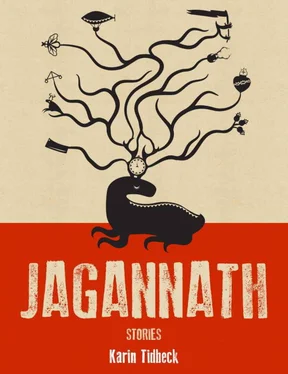
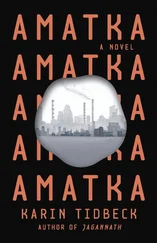
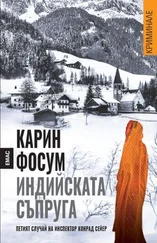
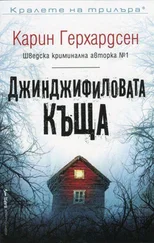
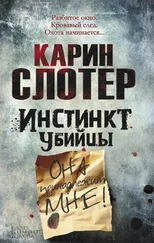
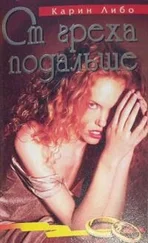
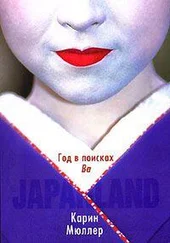
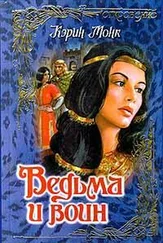

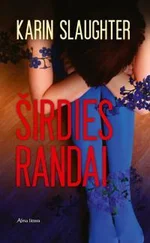
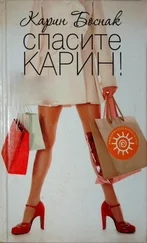

![Карин Тидбек - Аматка [ЛП]](/books/438406/karin-tidbek-amatka-lp-thumb.webp)